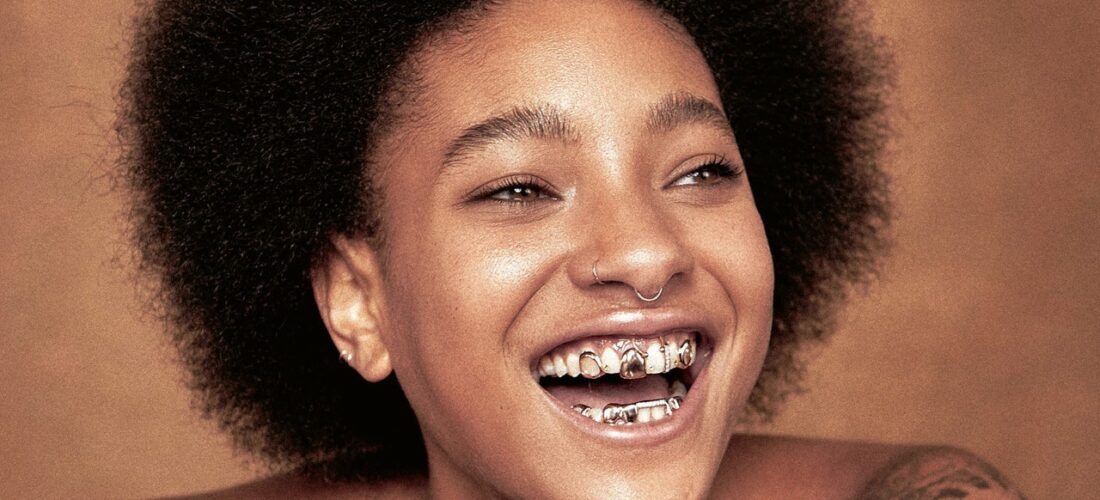Sitting in the backless hot seat of NPR’s Tiny Desk earlier this month, Willow seemed more uninhibited and confident than ever. That’s a change of pace for an artist who’s existed under the harsh microscope of celebrity her entire life. But here, backed by bass, guitar, piano, and drums, she swayed and beamed like no one was watching. She “just wants to feel it and be in the vibe,” Willow said on a call beforehand, a predictably heady desire that nonetheless suited the band’s sleek renditions of old and new songs. They gave the peppy twang of her 2015 megahit “Wait a Minute!” a sloping, jazzy remix falling somewhere between Alanis Morissette and Esperanza Spalding, and they sanded down the light pop-punk edges of her cathartic 2022 ballad “Split,” putting more emphasis on her breathy falsetto. But a version of “symptom of life,” a single from her new album empathogen, best illuminated the next phase in Willow’s evolution. Over crawling bass riffs, drums, and siren-like guitar, Willow articulated ideas about pain and anxiety she’s been picking at her whole career: “It’s like a turtle in the sand/Making way to the ocean/Almost meeting the end/Because the birds are in motion.” On empathogen, she follows suit, keeping things poetic without getting too sappy, staring mortality in the face while she begins the musical healing process in earnest.
Willow’s musical and philosophical wanderlust over the last nine years has been exhausting—Annunaki-referencing neo-soul, Travis Barker-indebted pop-punk, empowerment-core odes to feeling feelings and rocking out. She’s never been short on ideas, but even the best of her earlier work lands like freehand graffiti writing; colorful and expressive, sure, but often lacking the focus and precision of stenciled graf. empathogen is the closest she’s come to not just channeling but harnessing the rawness of self-acceptance in young adulthood. It’s her most mature and well-rounded offering yet, though her writing can sometimes be as surface-level as an abandoned tweet draft.
The punk and metal influences of her last two albums have been pushed to the margins by a more ambitious fusion: “jazz, funk, and a little bit of pop,” as she recently told Vogue Australia, along with Indian raga, what she calls the “indigenous, ceremonial vibes” of Native American throat singing, and Gregorian chant. This hybrid gives shapes to the sprawling “false self,” which combines funky bass, deep drum blasts, and stacked vocals that swell and contract like the vague panic attack Willow describes in its hook. “I wanna crash, feel so attacked/On a mad dash in my own brain… Am I insane? Feel the answer change each day,” she sings, the music doing much of the heavy lifting. Thankfully, there are no treatises on phone addiction and only a few pie-in-the-sky paeans to spirituality on empathogen. But Willow’s lyrics often lean on bland aphorisms that gesture at emotional reconciliation instead of actually going there. “Don’t ask questions/When life’s expressing/Itself through you and speaking the truth,” she reads from your aunt’s latest Facebook post on “between i and she.” Album closer “b i g f e e l i n g s” has a chorus that begins, “I have such big feelings”; it sounds ripped from a rejected High School Musical: The Musical: The Series script. These had me longing for more moments like “‘i know that face.’,” where the pep talk she gives herself for running from her darkest thoughts is as urgent as its staccato delivery and syncopated jazz ensemble production.
